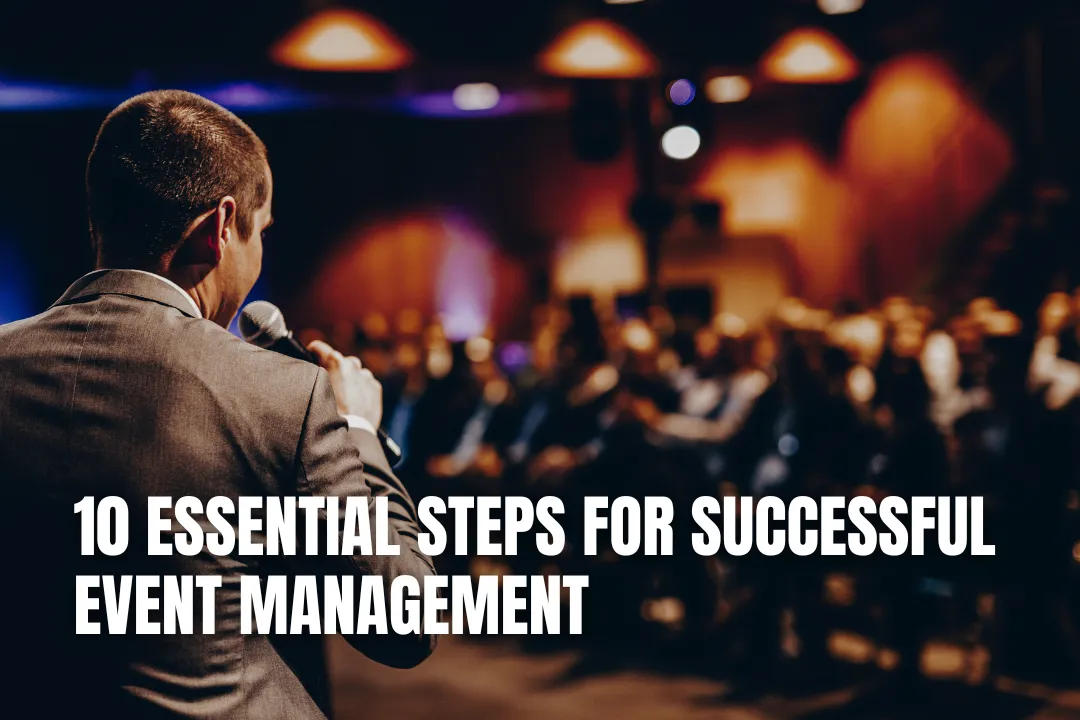
Editorial Disclaimer
This content is published for general information and editorial purposes only. It does not constitute financial, investment, or legal advice, nor should it be relied upon as such. Any mention of companies, platforms, or services does not imply endorsement or recommendation. We are not affiliated with, nor do we accept responsibility for, any third-party entities referenced. Financial markets and company circumstances can change rapidly. Readers should perform their own independent research and seek professional advice before making any financial or investment decisions.
Planning an event can be exciting but also challenging. From setting goals to handling logistics, countless details need attention. Successful events do not happen by accident, they are the result of careful planning and execution. Whether it is a small private gathering or a large corporate conference, following a structured process makes all the difference.
Here are ten essential steps to help you manage events successfully and deliver an experience that guests will remember.
Every event should start with a purpose. Ask yourself why you are organising it. Is the goal to educate, celebrate, promote, or raise awareness? Defining clear objectives will guide all your decisions and help you measure success afterwards. An experienced Event Management Company always begins by setting goals because they act as a roadmap for the entire process.
A budget keeps your planning organised and prevents unnecessary expenses. List out all possible costs such as venue, catering, decoration, entertainment, staffing, and marketing. Having a realistic budget allows you to allocate resources wisely. It also helps in making quick decisions when faced with options, ensuring you do not overspend.
The venue sets the tone of the event. When choosing a location, think about accessibility, capacity, facilities, and ambience. A great venue enhances the overall experience and makes your event memorable. If you are unsure where to start, an Event Management Company can recommend venues that fit both your theme and budget.
No event planner can do everything alone. Building a reliable team is essential. Assign responsibilities such as logistics, guest management, vendor coordination, and marketing. Clear communication within the team reduces confusion and ensures every aspect of the event is covered.
A timeline is your best friend in event management. Break down the planning into stages: booking vendors, launching promotions, confirming attendees, and preparing materials. Setting deadlines for each task keeps everyone on track and avoids last-minute stress. A detailed timeline also provides flexibility to handle unexpected challenges.
Vendors play a critical role in making your event successful. From catering to audio-visual setups, every service provider should be reliable. Research thoroughly, read reviews, and if possible, ask for referrals. Building good relationships with vendors ensures smoother coordination on the day of the event. Many companies prefer to rely on an Event Management Company to handle vendor negotiations because they bring industry connections and experience.
An event is more than just logistics; it is about the experience. Plan engaging sessions, entertainment, or interactive activities that align with your event goals. For corporate events, this might mean insightful speakers or workshops. For social events, it could be music, performances, or photo opportunities. Keeping your audience engaged ensures they walk away with positive memories.
Even the best-planned event will not succeed if people do not know about it. Use different marketing channels to spread the word. Social media, email campaigns, and partnerships with influencers can help attract attendees. For larger events, press releases and media coverage may also be useful. A professional Event Management Company often includes promotional strategies as part of its services to maximise attendance.
No matter how carefully you plan, things can still go wrong. A guest speaker may cancel, the weather might change, or technical equipment could fail. Always have a backup plan in place. Being prepared for the unexpected reduces stress and keeps the event running smoothly even when surprises occur.
After the event, take time to reflect. Collect feedback from attendees, team members, and vendors. Evaluate what went well and what could be improved. This process helps you grow and ensures your next event is even more successful. Event Management Companies often provide post-event reports that include data on attendance, engagement, and return on investment, giving you valuable insights for the future.
Event management is a blend of creativity, organisation, and adaptability. By following these ten steps, you can transform an idea into a successful experience that achieves your goals and leaves a lasting impression. While individuals and organisations can plan events independently, working with an experienced Event Management Company like Purrple Orryx often brings expertise, resources, and peace of mind. Their knowledge allows you to focus on the bigger picture while professionals handle the details.
In the end, successful events are those that connect with people, achieve their purpose, and create lasting memories. With the right planning and support, your next event can do exactly that.
Defining clear objectives gives your event a purpose. It helps you make all your planning decisions and provides a way to measure if the event was a success, ensuring you meet your goals.
A realistic budget keeps your spending organised and stops you from overspending. It helps you decide where to put your money for things like the venue, food, and entertainment, making sure you use your resources wisely.
When picking a venue, think about how easy it is to get to, how many people it can hold, what facilities it offers, and the general atmosphere. The right venue really improves the overall experience for your guests.
To market your event well, use various channels. Social media, email campaigns, and working with influencers can help attract attendees. For bigger events, press releases and media coverage might also be useful.